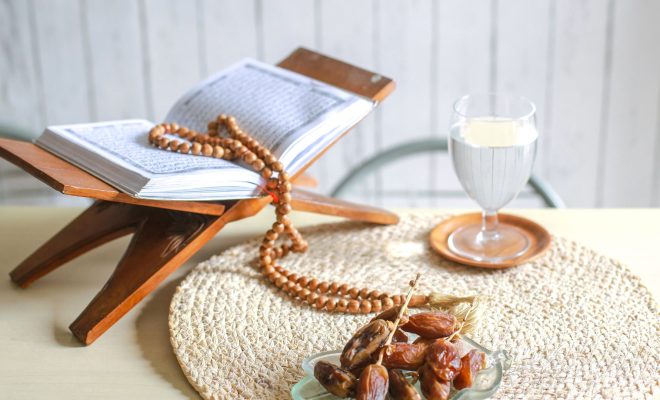Another Year Closer to Meeting Our Lord!

As we enter the year 2022 in the Gregorian Calendar, Canadian society at large usually take this time to celebrate, with only COVID dampening these festivities. For Muslims, however, every passage of time is taken very seriously.
Each passing hour, week, month, or year, brings us that much closer to the most momentous event of our lives – our meeting with our Creator!
This meeting can be one of tremendous joy and relief, or it can be one of great shame and terror, depending on our preparation for this moment. Time will bear a witness, either for us or against us, depending on how we use it.
This is why it is crucial for us to take every opportunity we can to use measures of time such as the new year, as a moment to reflect on how we have spent our time and what we can be doing to improve. Time is a finite resource, and no amount of wealth or skill will bring back a single moment that has already passed.
How are currently using our time? With all the activities and distractions available to us, how do we determine our priorities?
Time as Loss
Our Creator tells us, in Surah Asr:
“By the declining day, man is [deep] in loss, except for those who believe, do good deeds, urge one another to the truth, and urge one another to steadfastness.” [TMQ 103:1-3]
Allah (swt) links time to deep loss, if it is not managed by one who has the correct conviction and commitments on how to use it. This is the most crucial concept that we can internalize regarding our passing lives.
Squandering our lives without committing ourselves to understanding our beliefs, sincerely basing our actions on those beliefs, and urging others to do the same is the deepest loss. The great student of the Sahabah (ra),
Hasan al Basri (rh), once heard an ice-seller in the market exclaim:
‘O people! Have mercy on one whose capital is melting away.’ He then reflected on Surah Asr, and how just as the ice seller was losing all his merchandise over time as it melted, similarly our opportunities to prepare for our next and permanent life are melting away as well.
As our beloved Messenger (saw) tells us:
“There are two blessings which many people waste: health and free time.” [Bukhari]
Time is not the problem
Allah tells us in a hadith Qudsi:
‘The son of Adam wrongs me for he curses Ad-Dahr (Time); though I am Ad-Dahr (Time). In My Hands are all things, and I cause the revolution of day and night’” [Al-Bukhari]
The meaning of this hadith is that Allah (swt) owns and controls time, and its passage is beyond our capacity to alter. So instead of cursing the passage of time, and the effect that it has on our bodies and abilities, which would be to challenge the qadar of Allah (swt), we should be focusing on how we are adjusting to the loss of our time and our capacities.
It is not time that we can manage, but rather our own lives, our commitments, habits, and priorities. The real lesson is that our time does not belong to us, it belongs to Allah (swt). And He has determined how we should be spending it, and has told us that we are accountable to Him for how we spend it.
The War Against Distraction
While we are each personally responsible and accountable to Allah (swt) for what we did with the opportunity that he gave us, it is essential to recognize that getting distracted in not just a personal failing. Rather, we are all struggling against an increasingly sophisticated and complex media and technology system that is geared to capture our attention.
There are teams of psychologists, social scientists and engineers that are spending millions of dollars trying to make the apps on our phones and the screens that we operate with our thumbs more and more addictive to us.
Recognizing this reality does not absolve us of our duty to be mindful of Allah (swt). Rather, it empowers us to understand that we are in a grave struggle against those who want to keep us heedless and distracted. We will need to use our conviction, planning, determination, and our connection with each other to resist
Practical Steps to Managing our Time
1- Changing our beliefs
Change begins within our own thoughts and concepts.
Allah (swt) tells us:
“…Indeed, Allah will not change the condition of a people until they change what is in themselves…” [TMQ 13:11]
If our lives are not centered around accountability to Allah (swt) we will not be able to remain focused. For this we need to assess our intellectual and emotional connection to Our Creator, and the Afterlife.
We need to assess whether we are intellectually convinced of the proofs of our aqueedah, and if we are taking the time to make remembrance of Allah (swt), reminding ourselves of His reward and pleasure, and His punishment and wrath as well. Dua, dhikr, and the recitation of the Quran with meaning needs to be a regular occurrence in our lives.
We should reflect on our accountability to Allah (swt). Imagine for a moment that we are in front of Allah (swt) on the Day of Judgment.
When we are looking back at this time, will we be wringing our hands in regret, consumed with grief, and anxiety about sports, entertainment and video games that we consumed our time on, or will we be in a state of relief, joy, and happiness that we spent this time earning our good deeds?
Alhamdullilah, we still have the chance to make the right choice right now! Allah (swt) warned us:
“You should know that the life of this world is only play and amusement, a show and boasting among yourselves, a quest for greater riches and more children. Its similitude is that of vegetation that flourishes after rain: the growth of which delights the tillers, then it withers, and you see it turn yellow, soon it becomes dry and crumbles away. In the hereafter there will be either severe punishment or forgiveness from Allah and His good pleasure. The life of this world is nothing but an illusion.” [TMQ 57:20]
2- Having a Vision
Our deen is not just about having a set of do’s and don’ts. rather it is about radically transforming ourselves, our families, our communities and our Ummah. This means Muslims are challenged to think big and try to realize big changes in our lives.
Think about the kind of Muslim you want to be, and the kind of society in which you want to live, and let the vision energize your idle moments into productive ones.
Even when his companions were at their weakest and most vulnerable states, RasulAllah (saw) would promise them the palaces of Persia and Rome if they strived on the deen, and they were energized by this. We should be energized by our mission to challenge the evils in our hearts and in our societies and convey the message of Islam.
“You are the best nation produced [as an example] for mankind. You enjoin what is right and forbid what is wrong and believe in Allah.” [TMQ 3:110]
3- Setting our Priorities
Just as our time does not belong to us, neither do our priorities.
Allah (swt) has told us the activities that are obligatory on us, and those which are not obligatory but beloved to Him and will draw us nearer to Him.
The Prophet (saw) tells us in a hadith Qudsi:
“My servant draws not near to Me with anything more loved by Me than the religious duties I have enjoined upon him, and My servant continues to draw near to Me with supererogatory works so that I shall love him. When I love him I am his hearing with which he hears, his seeing with which he sees, his hand with which he strikes and his foot with which he walks. Were he to ask [something] of Me, I would surely give it to him, and were he to ask Me for refuge, I would surely grant him it.” [Bukhari]
This informs us that our priorities have to begin with what brings us closest to Allah (swt), which is our obligations. The time we find between our obligations, we would be wise to use on actions that may not be obligatory, but are recommended. We spend much of our time concerning ourselves with the affairs of this world, and a portion of this is obligatory.
But ultimately, the affairs of this world should not distract us from the ultimate reality, that we will die and carry nothing with us except our deeds and relationships with each other in front of Allah (swt).
“If anyone desires [only] the fleeting life, We speed up whatever We will in it, for whoever We wish; in the end We have prepared Hell for him in which to burn, disgraced and rejected.” [TMQ 17:18]
It is also not acceptable to busy ourselves in the voluntary acts of the deen, whether it be learning classical books, or performing extra dhikr, while ignoring the obligations of the deen. If we see chaos in our families, communities, or the Ummah at large, but do nothing about it, our voluntary actions may not save us from the punishment of Allah (swt). As our beloved Messenger (saw) warned us:
“When the people see the wrongdoer, and they do not stop him (from doing wrong), then it is soon that Allah shall envelope you in a punishment from Him.”[Tirmidhi]
4- Finding Joy in the Deen
We need to distinguish between pleasure and happiness.
Pleasure is just a temporary excitement of the senses, and those who equate it with happiness constantly need stimulation to keep themselves amused.
There is a deep emptiness and comes from this kind of life. True joy comes from passion, commitment, and hard work. In practical terms, this means we need to find out which of our skills we are passionate about and hope we can use it in service of the deen.
It also means that we need to find the time to rest, take breaks, and find relaxation in our family’s and friend’s company, so that we can be refreshed and begin again on our tasks.
5- Finding a Community
Focusing completely on yourself can be exhausting, demoralizing and lonely. Allah (swt) has commanded us to take responsibility for each other, and to cooperate in righteousness.
This is why it is essential for us, when reassessing the use of our time, to involve other people. This can mean buddying up with someone to read the Quran, finish a book, or start a dawah project. This can also mean taking out time in your day to understand the needs of the community, whether it be elders that need assistance or youth that need guidance.
Ultimately, our deen is too vast and transformative for any of us to carry it alone. As the last verse in Surah Asr reminds us, we are in deep loss if we are not encouraging each other towards truth and patience. It is only when we aid each other that we can rectify our own affairs, and each other’s as well.
This is how we can strengthen our relationship with Allah (swt), strengthen our families, organize our communities, and revive Islam across the Ummah.
“Help each other in righteousness and piety, and do not help each other in sin and aggression. Fear Allah. Surely, Allah is severe at punishment.” [TMQ 5:2]









